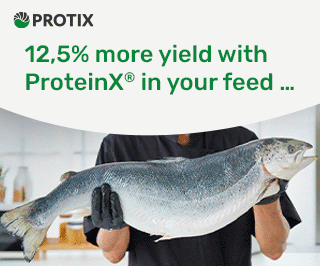Massive salmon mortalities. Collapse of a sponsor agreement. A weak year result-wise so far. Problems with bacterial kidney disease (BKD). Icelandic Arnarlax has certainly been put to the test in 2018, and that is causing problems for the reputation of the company.
“2018 is a year we just want to be over and done with,” CEO Kristian Matthiasson told SalmonBusiness, well aware that the year isn’t yet over.
SalmonBusiness met up with the Norwegian-Icelander at Arnarlax’s head office in Bíldudalur – a small rural settlement with just 290 inhabitants in the Westfjords of Iceland, around five hours’ drive from Reykjavik.

Catastrophe
In 2017 the company produced 10,000 tonnes of salmon. In 2018 they harvested around 6,000 tonnes of salmon. The reason: 200,000 salmon died at the Laugardalur site in February, after a cage broke up and the company was forced to move the fish in conditions of low temperatures.
“It was a catastrophe for us”.
– Could it have been avoided?
“Everything can be avoided. We have to get into a position where we have more good luck than bad luck,” said a self-critical Matthiasson.
Making matters worse was the fact that the fish that were moved were also infected by bacterial kidney disease (BKD), a serious, chronic disease in salmon caused by the intracellular bacteria Renibacterium salmoninarum. A disease that has pursued Arnarlax ever since it was founded, and of which the company has not been able to eradicate.
“The fish were weaker due to BKD, explained Matthiasson. “One can of course speculate on if it had been a fine, healthy fish, would it have withstood the transfer? Who knows.”
But he is quick to point out that they have followed a plan the last two years to be rid of BKD in the smolt production facility, including UV cleansing of water and no longer using older tanks in the smolt facility.
“We’ve come a long way, but we’re not quite there yet. The aim is to produce BDK-free fish.

– We must lay the blame at our own doorstep
Nonetheless, he is aware that this type of incident creates problems for the company’s reputation.
“We can’t afford for anything like this to happen again. If we prevent similar incidents from occurring, then we won’t have the negative media image either. We must take the blame ourselves, it is we who have given the newspapers something to write about”.
The company is subject to considerable media coverage in Iceland, due, among other reasons, to the episode in February.
“Right now, there’s a bounty on our heads at Arnarlax. There are many journalists who are working with one intention in mind; to create negative articles about us, and we are not allowed to comment on the articles. They contain many lies, and have no relevance whatsoever to do with the reality,” claimed Matthiasson.
Despondent
An article that has recently grabbed considerable column space in Icelandic media is a sponsor agreement that collapsed with the national Icelandic culinary team. 14 of 17 chefs withdrew in protest against the sponsor agreement, the outcome of which was the cancellation of the agreement, because Arnarlax allegedly had not made its first payment by the deadline of 1st September.

This is denied by Matthiasson, who says the deadline was 25th September. According to him, it took around two months before the sponsor agreement was signed 20th August. During a formal celebration of the agreement at Harpa, the opera house in Reykjavik on 5th September, “both parties boasted about the salmon,” said Matthiasson.
“We took a photo of us together with the national culinary team. Everyone was happy and contented. The next day the team pulled out, calling us “environmental louts”, accusing us of just wanting to destroy Icelandic nature.
“It’s a great shame that young and promising chefs are being dragged into a political gambit on whether or not we should have salmon farming in Iceland. It’s disturbing that they are taking a political standpoint; as it could then prove difficult for them to secure financing in the future,” said a despondent Matthiasson.
– What effect does an article of this nature have on Arnarlax’s reputation?
“It’s not good. It knocked us for six, a PR disaster you could say. It gives opponents of salmon farming a free rein to really bask in delight at the uproar.” Arnalax has now hired its own PR consultant.
According to Matthiasson, opposition to fish farming is widespread in Iceland.
“Particularly from certain special interest organisations that are run by sports fishermen. The debate is less nuanced than that we see in Norway, and there are heaps of myths that are allowed to live a life of their own. It’s hard to operate in such a difficult environment,” he said, adding that Arnalax is engaged in educating the general public by “providing correct information about salmon farming”.
“You can’t change people’s opinions, but the objective is to offer a place where you can find information, for those who want to know more. We can’t do anything about the ones that have already made up their minds,” he said.

Promising 2017-generation
Due to the mass mortalities in February, the result is not looking too good so far in 2018 for Arnarlax, but Matthiasson said that was to be expected, given the aforementioned incident. He calls 2018 an “intermediary year”.
“In 2017 we achieved our target of delivering 10,000 tonnes of fish. We have not managed to advance any further on this. It’s necessary for us to take a step back, while we would have preferred to take a step forward.”
However, not all is doom and gloom for Arnarlax in 2018.
“Prospects look bright for the 2017-generation, which we’ll start harvesting in November. That has been a robust production. We’re looking forward to delivering better figures,” concluded Matthiasson.



